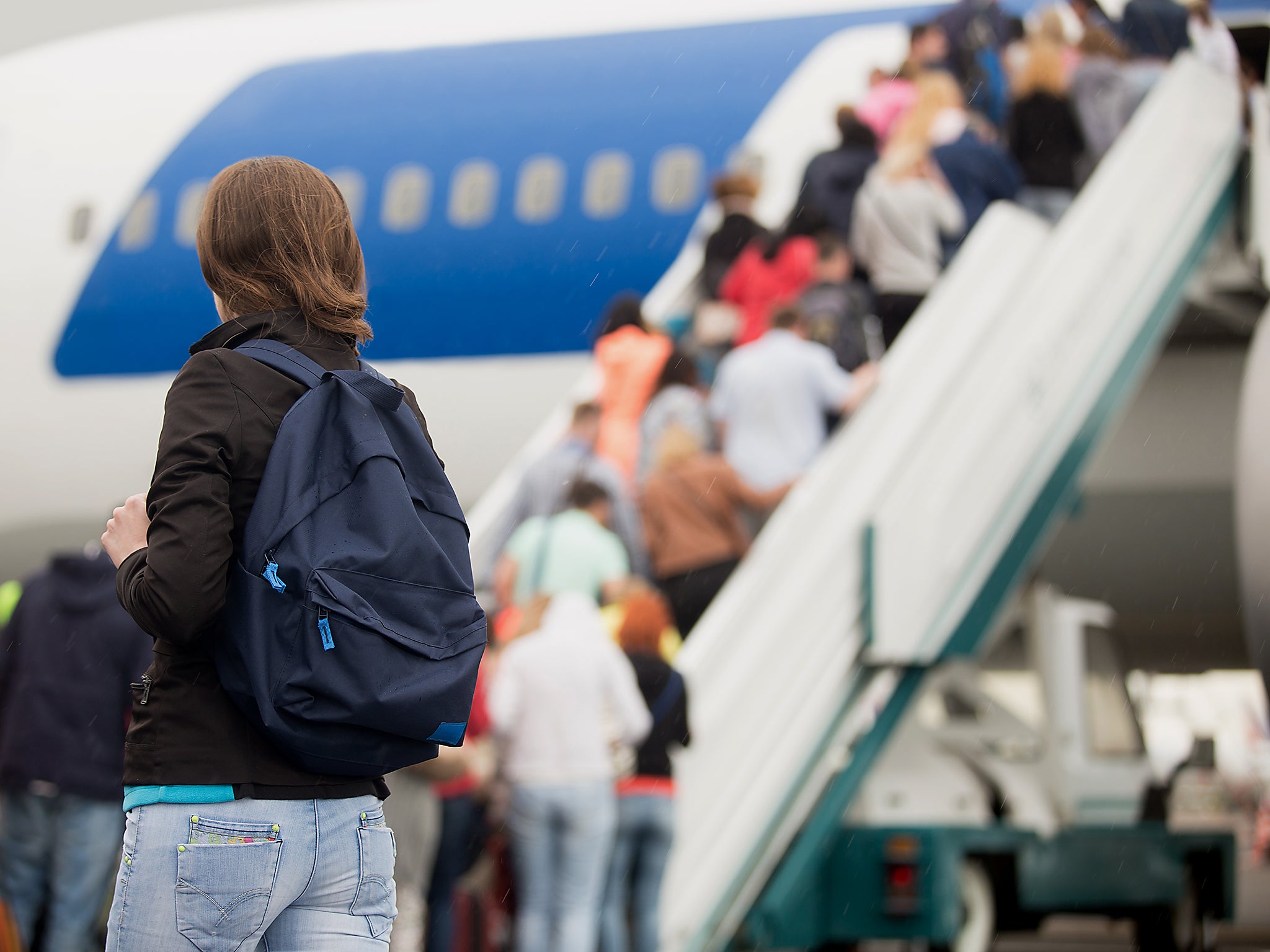Drunks on a plane and other disruptions: Why passengers who cause delays must pay the price
The Man Who Pays His Way: Passengers need to be more responsible, says our travel correspondent Simon Calder

On Christmas Eve, Laura was flying on Norwegian from Gatwick to Oakland, for a well-earned break in California. The plane diverted to Calgary when a passenger became ill, and spent three hours on the Tarmac in a Canadian midwinter.
Such events are unavoidable. But other disruptions are unnecessary. Earlier this year, at Las Vegas airport, a drunk passenger (not Laura) had to be offloaded before the flight departed. That was the relatively easy part. It was also necessary to trace his bag in the hold and remove it, which took considerably longer and resulted in a lunchtime arrival rather than getting home in time for elevenses.
Every excess minute an aircraft remains on a stand costs money. And when passengers miss onward connections, the airline has to assume responsibility for finding fresh flights, and providing meals and accommodation if necessary. (That's assuming the onward trip is part of the same ticket; if not, then the passenger takes the pain.) So there's a keen focus on getting away on time.
On Laura's previous westbound trip, while her plane was waiting for pushback at Gatwick, a fellow passenger was implausibly injured by a laptop that had been insecurely stowed in an overhead bin. When another traveller (not Laura) went to retrieve something just before departure, the computer dropped onto the head of the unsuspecting victim.
The crew immediately summoned paramedics to see if the passenger was well enough to travel; thankfully, she was. But the plane departed late, with the damage that delays inevitably have on onward travel plans or joyful rendezvous.
On all these occasions, the crew did the right thing.
In the Las Vegas incident, it might have been tempting simply to say, “Oh, he's drunk and will probably just go to sleep,” rather than accepting an annoying and expensive delay.
But the law is clear: passengers must not be intoxicated on a plane. That’s not just because of the risk of air rage (which is usually alcohol-related). It’s also to prevent a drunk impeding an emergency evacuation — such the one that took place on the runway at Las Vegas last year, when a Gatwick-bound plane caught fire during the take-off run. Incidentally, the blazing BA Boeing 777 was repaired and is now back in active service; I flew on G-VIIO from Gatwick to Orlando in October, and you wouldn’t know that anything had happened to “India Oscar”.
So, good calls from the cabin crew — at a cost in time for passengers and the airline involved.
Given that no-one wants to be late, what can be done to reduce such apparently random incidents? The short answer: penalise the passengers whose thoughtless behaviour holds everyone up.
The most obvious candidates among the travelling public for paying a penalty are perpetrators of air rage. Disruptive passengers who cause a plane to divert trigger high costs to the airline and inconvenience to their passengers. Offenders are routinely handed over to local police. But criminal prosecutions are rare, partly because airlines are unwilling to see cabin crew and pilots tied up in court cases overseas rather than flying.
Carriers commonly say they will recover costs incurred through the civil courts — which could, with damages running into tens of thousands, be an even more effective deterrent. But I have yet to see serious intent on the part of airlines.
Rather than creating more work for lawyers, there are remedies readily available. Anyone who tries to board a plane drunk should be reunited with their baggage but disconnected from their destination, and obliged to buy a new ticket.
Then there are the people who can't be bothered to get to the gate on time. The airlines don't help, by making fanciful claims that boarding will close 30 or 40 minutes before the appointed departure time. Most passengers know that assertion is tosh, but some respond by planning to turn up with just a couple of minutes to go.
In my experience you need to be at the gate with 20 minutes to spare, just in case it's one of those rare departures where the captain is able to leave earlier than scheduled. Typically, with 10 minutes to go, airlines start searching for the baggage of missing passengers; if the bag turns up before the person, they’re off the plane. Perhaps if airlines spelt out the cost of dawdling in duty-free, fewer passengers would reach the gate to discover they have been offloaded.
That might sound harsh, but airline travellers need to understand that causing a kerfuffle is not cost-free. Whether they are contemplating another drink or have simply left their brain behind along with the cat, they are responsible for the consequences of their actions. And in air travel, those consequences can ripple disruptively and expensively across the world. Just ask Laura.
Well, you'll need to wait until she returns from California (and hope you're not on that flight with her). But when she does, she will become our Head of Travel.
The present holder of that illustrious title, Nicola Trup, is about to spread her wings and spend more time with the world. Nicola will be much missed. I am happy to say, though, she will still be writing inspirational and enlightening travel stories for us in a New Year that, I hope, will be less disrupted than the one the world is leaving in its wake.
Subscribe to Independent Premium to bookmark this article
Want to bookmark your favourite articles and stories to read or reference later? Start your Independent Premium subscription today.

Join our commenting forum
Join thought-provoking conversations, follow other Independent readers and see their replies